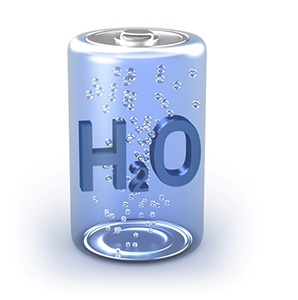Aug 4 2015
The storage of solar energy in hydrogen or hydrocarbons through artificial photosynthesis systems is attractive due to its potential to meet the world’s increasing energy demand.

The utilisation of solar energy in the electrochemical reaction is an effective way to reduce the required energy input and increase efficiency.
The ability of devices to perform artificial photosynthesis is wholly dependent on using efficient, cheap and productive catalysts to make the chemical reactions occur.
Manganese Oxide (MnOx) materials have been widely studied and perform excellently as electro-catalysts for the water oxidation reaction. Studies have shown, however, that these materials experience very low photo-catalytic performance, despite being excellent light absorbers.
Performance boost
Recent work by ACES researchers shows that the photo-electrochemical water oxidation performance of MnOx can be significantly improved by using buffered aqueous electrolytes containing amine-based ionic liquids. The control of the pH solution and the type of ionic liquid used are crucial to the increased performance of the MnOx.
A material to “do it all”
ACES Research Fellow Dr Fengling Zhou said the development of high photo-electrochemical performance on one single material was a significant step forward for water splitting devices.
“Such a development will have an impact on the design of artificial photosynthesis devices, as additional light-harvesting materials typically need to be included with the electro-catalyst to induce photo-catalysis,” she said.
“Having one material that can “do it all” would reduce complexity, reduce costs and increase efficiency.”
Source: http://www.electromaterials.edu.au/